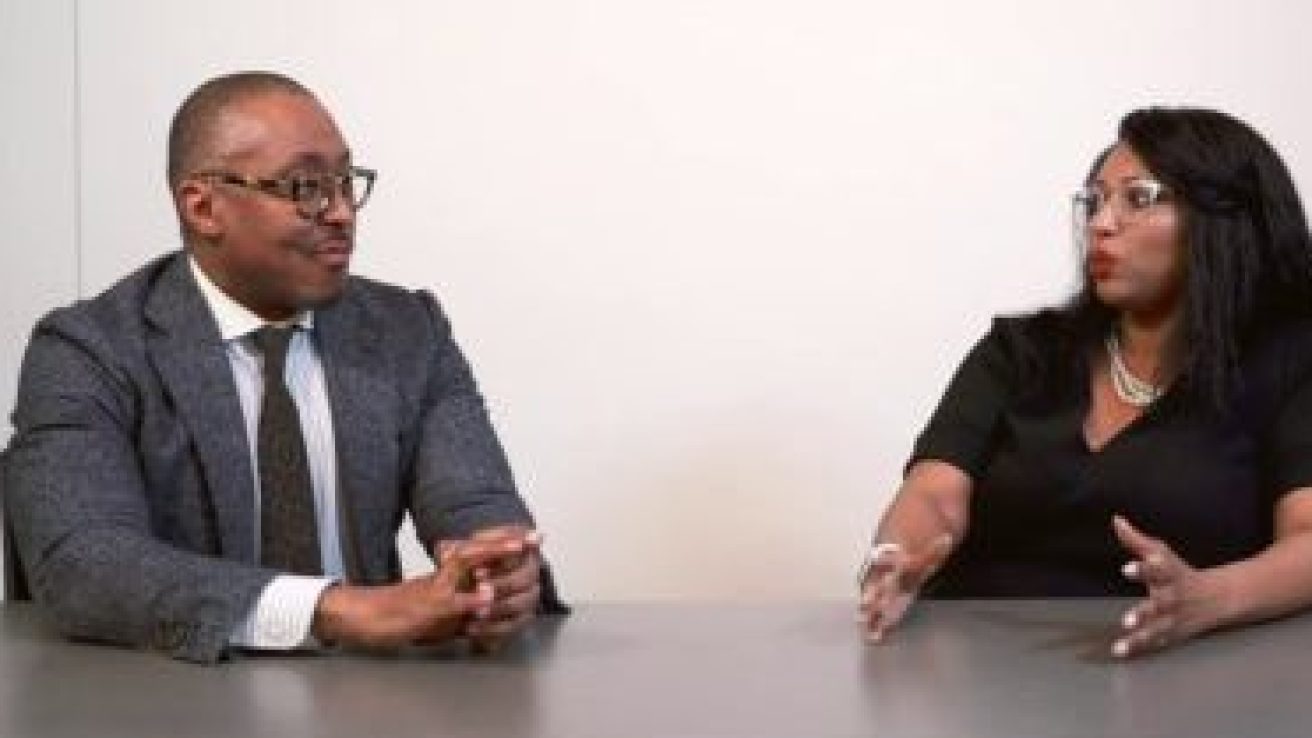In this MD Newsline exclusive interview, internist/HIV specialist Dr. Pete Thomas sits down for an interview with resident physician/public health professional Dr. Janelle Hadley to discuss cultural respect, health diversity, and the Black transgender population.
Dr. Janelle Hadley:
What does cultural competency mean to you? How can physicians with less experience treating minority patients provide culturally sensitive care?
Dr. Pete Thomas:
“I think cultural competency for me—I flip it and I say, it’s not about the competency, it’s more about the respect. So, for me, it’s cultural respect. I respect who you are. If you begin there, then even in my lack of fund of knowledge about whoever you might be—whether you’re transgender, whether you’re Jewish, or if you’re Asian American—doesn’t matter because I’m approaching it from a perspective of respect.
And then once you do that, that immediately opens the door. The patient begins to say, ‘well, this person respects me, and because they respect me, I’m going to open the door for them. I’m going to tell them things potentially that I had no plans of telling them.’ You know?
So how do I do that? Sometimes, it’s literally having a regular conversation. And I know, right now, in the work environment that many providers are in, especially in the outpatient setting, we literally have 15 minutes. Am I right? And not less. When you think about the EMR and all the stuff we have to document, you have to ask yourself, ‘can I add another 3 minutes to this?’
But you’d be surprised. If you ask them a regular question, I’m talking about, ‘oh, what do you think about this weather?’ If you ask them a regular question, all of a sudden, you start to realize, ‘you two got something in common.’
And then they say, ‘oh, they’re connected to me now.’ And so now, there’s this interplay—almost like a dance—a mental and emotional dance that’s happening where I’m saying, ‘I respect you. Would you like to dance?’ And then they say, ‘hmm, no one’s ever done that to me.’
So this person who’s in this authoritative position—white coat, the whole nine—has these medications that are foreign to me, asked me to dance, or asked me about my day. Or, asked me, ‘what is it like to live in California? I hear you’re from California. Tell me about that.’
And then, you’d be surprised at what happens: patients share things with you, and you establish a connection, and then all of a sudden, it’s not foreign. And you say, ‘well, Ms. Jones, I think we’re going to have to change this medicine to this medicine.’
Before they’d be like, ‘you’re not going to…I just met you. Who are you?’ You know? But now because we danced because we’ve established some mutual respect, they feel like, ‘you know, this person has my best interest. They’re interested in me, and so…’
And I give them a reason why [I’m changing their medication]. Then, I always end my visits with, ‘is there anything else we need to talk about today?’ And so, that’s the dynamic of it, and to your point, that’s a skillset. Right? And that’s not just about knowing the differential for hematuria or shortness of breath or whatever.
That’s about knowing people and trying to gain some leeway and influence because you can write fifteen hundred prescriptions, [but] if that patient doesn’t trust you, doesn’t believe that you have their best interest, they’re not going to do what you say. They might say, ‘ok, I’m going to go fill the prescription, but I’m not going to take it.’
And so, those are the things that I think that more providers should do even if they’re not of the same ethnicity. That they can do that.”
Dr. Janelle Hadley:
Why does health diversity matter? How does health diversity contribute to cultural respect, particularly for marginalized populations such as the Black transgender population?
Dr. Pete Thomas:
“It’s huge to find a team of people that take care of you that respect you. Many times I get providers who are not African American who ask me, ‘well, should we have…?’ I’m a firm believer in having a very culturally diverse team.
And not just in social workers and care coordination teams but also in providers, having providers of color because when you have to reveal your most intimate things with someone, sometimes it matters to have someone who looks like you. It really does.
Some people can be dismissive about it, but in many cases, those are folks who, no matter where they go they have people who look like them who are providing care for them. So, I think one of the issues is having people that respect them and respect their choices. Our Black transgender population is the most vulnerable of all our patients [with HIV].
The Black transgender population has the worst outcomes for HIV treatment. And that’s shameful because we have these highly effective medications. So why is that the case? The efficacy of the medications hasn’t gone down. The challenge in this population is the barriers that a Black trans woman or a Black trans man has to overcome to access care.
That’s the real challenge, and that’s why the health outcomes for Black trans folks look the way they do. I mean, they look like our numbers back in the day because they’re not on medication, or they’re not on medication consistently because of how they’re mistreated when they access care.
We can be dismissive about that, but it makes people feel small, it makes people feel unwanted, and it invalidates them. And those are the things that prevent our patients from accessing care quickly and consistently.”
Responses have been condensed and lightly edited.










